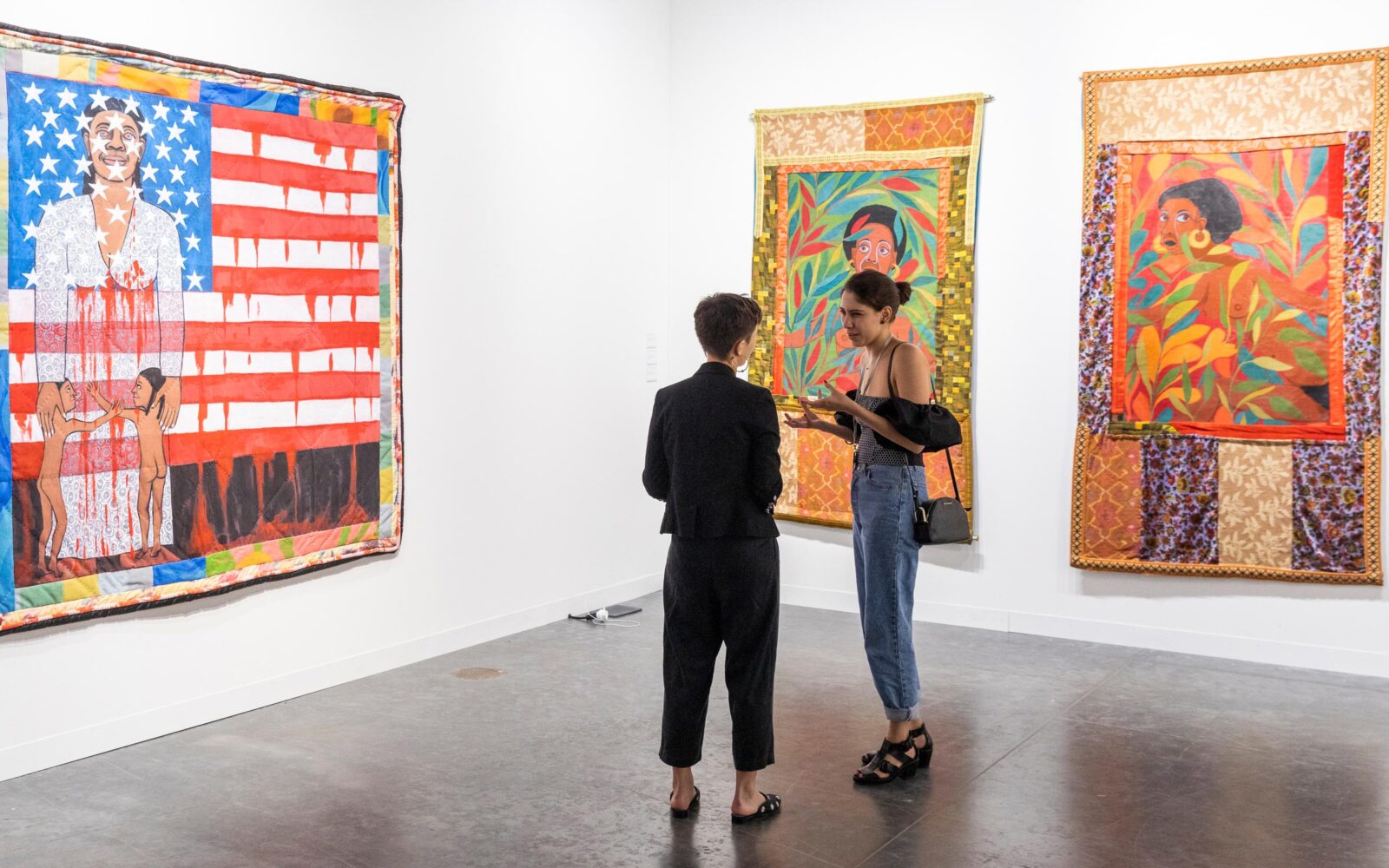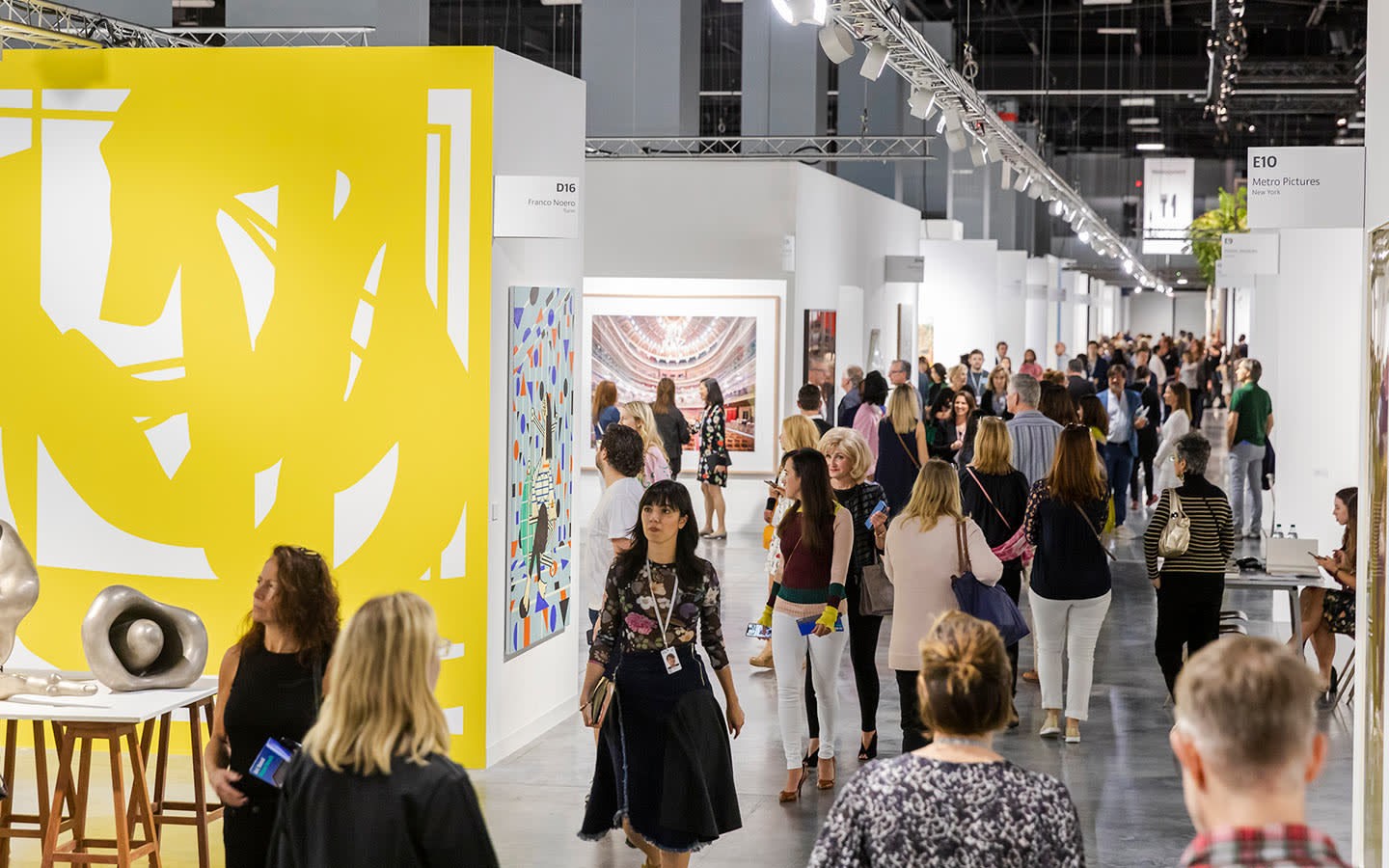According to the 2021 Global Art Market Annual Report sponsored by Art Basel and UBS and compiled by art economist Claire McAndrew. The result is an even bigger drop of 27 percent from the $ 67.4 billion achieved in 2018. Online sales of art and antiques hit a record $ 12.4 billion, doubling from 2019 and securing a record 25 percent market share from 9 percent last year – the first time e-commerce has surpassed that number of retail sales in the market as a whole.
The international market has seen a return to levels between 2009 and 2010, the years of the last major recession. In 2009, the market plunged 36 percent to a low of $ 39.5 billion, but by 2010 rose again to $ 57 billion.
The USA, the United Kingdom, and China accounted for 82 percent of total sales, in line with the 2019 result. The U.S. still ranks as the highest-grossing art market. Britain and China retained market shares of 20 percent each. UK sales fell 22 percent from the previous year. Greater China fell just 12 percent, reaching $ 10 billion in total sales.
According to the Art Basel Report, in terms of auction sales, China surpassed the United States in 2020. This remarkable statistic is the result of the modern Hong Kong auctions held at the end of December. China’s share in the auction value was 36 percent. The US share was 29 percent.

The Chinese art market usually has lots ranging in value from $ 50,000 to $ 1 million. According to the report sponsored by Art Basel and UBS, this year, China has surpassed the United States in more than $ 10 million in lots sold at auctions.
It should be noted that in the gallery sector, sales fell 20 percent to about $ 29.3 billion. Private sales at auction houses increased to about $ 3.2 billion in 2020 (up 36 percent from 2019). Meanwhile, global public auction data fell 30 percent to $ 17.6 billion.
This decline in global auction sales was expected due to the close of the pandemic and is mainly due to reduced supplies and cancellation of sales, not a drop in demand. According to the report sponsored by Art Basel, the habits of Millennial and Gen Z buyers will be crucial in shaping the future of the art market, the economist said.
Millennial collectors spent the most in 2020, with average spending of $ 228,000, with 30 percent spending over $ 1 million (versus 17 percent of boomers). The new generation of art collectors remains extremely important, but having amassed large collections, they are less active in acquiring art. Among new collectors, there is still a gap in the ability of the trade to attract new customers, as the report sponsored by Art Basel says.
One of the predictions of the Art Basel mid-year report, released in September, was that the gap between the upper and lower end of the markets could widen, leading to a greater concentration of value at the top. According to McAndrew, this trend is a potential problem for art fair organizers.
Growing online sales do not mean a more level playing field. 61 percent of the 365 surveyed fairs were canceled, 37 percent hosted live events, and 2 percent of fairs hosted hybrid events.
McAndrew observed that the more crowded the online space, the harder it is to stand out. This kind of thing is problematic in the long run. You can end up with a hierarchy where only VIPs go to real fairs and then there is a huge mass market on the Internet.
McAndrew says that on the question of whether national political instability is influencing art buying and selling trends among wealthy people, it is argued that there is a social drive among wealthy collectors to buy art as a way to show support for the cultural sector.
The Art Basel 2021 is postponed from June to September 23-26

The main reason for the postponement is the concern for the health and safety of all participants.
The largest contemporary art fair Art Basel announced the postponement of the next issue from June 17-20 to September 23-26, 2021 due to the ongoing COVID-19 pandemic.
Previously, the organizers have already changed the timing of the event. According to the organizers of Art Basel 2021, the decision was made after extensive discussions and analysis in consultation with gallery owners and collectors, as well as external experts. The head of the fair pledged to continue its activities, connecting Art Basel with clients worldwide, online.
The Art Basel Online Browse Room initiative features three digital events, the first of which, OVR: Pioneers, will take place on March 24-27, 2021, and will focus on new artists who have discovered new aesthetics, conceptual or socio-political areas.

























